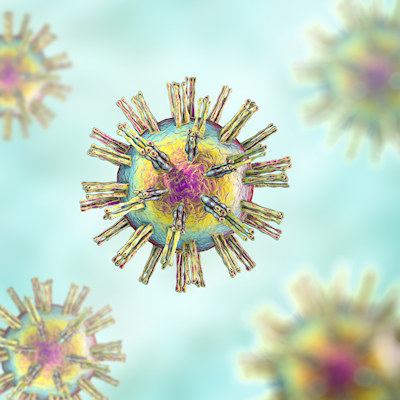The scientific advances in cell and gene therapy are extremely exciting to the researchers, manufacturers, and regulators involved in the development of these therapies. But science often runs ahead of society, and societal consensus is necessary for the broader dissemination of these technologies, according to keynote speaker Dr. George Daley, PhD, dean of medicine at Harvard Medical School.
In the beginning there were stem cells
In the late 1990s, Daley was focused on the creation of customized stem cells to treat genetic immune deficiency in mouse models. And later, the generation of disease-specific pluripotent stem cells.
In his talk at ASGCT 2020, Daley explained the establishment of stem cell research in the context of government funding, and the formation of international guidelines on the uses of these technologies.
The topic of stem cell research was a politicized issue from the onset, Daley believes. In 2001, a compromise executive order was signed by President George W. Bush supporting stem cell research, but only in the six existing derived cell lines. Then, in 2009 President Barack Obama signed a new executive order, eliminating these restrictions on stem cell research. There are now over 480 cell lines available for research purposes.
This debate is not fully settled, and the path forward may not be solved with federal funding alone. Importantly, the International Society for Stem Cell Research (ISSCR) was formed in 2002 and has since worked on developing guidelines for the field of stem cell research that considers cultural, political, legal, and ethical perspectives. The organization is expecting to release updated guidelines in 2021 with a focus on gene editing techniques.
Daley noted that a general governance framework is needed for novel, emerging technologies and that ethical and social consequences must be considered, and consensus built. This becomes particularly important as genome editing technologies become more readily available and prevalent.
International community comes to grips with gene editing
Two important transnational groups have been formed to address clinical regulations for the use of genomic medicines.
The International Commission on the Clinical Use of Human Germline Genome Editing was convened in 2019 by the U.S. National Academy of Medicine, the U.S. National Academy of Sciences, and the U.K.'s Royal Society, with the participation of academies of sciences and medicine from around the world. Together, they aim to develop a framework for scientists, clinicians, and regulatory authorities to consider when to assess potential clinical applications of human germline genome editing.
On September 3, the commission released its "Heritable Human Genome Editing" report. It details a translational pathway for initial clinical use of heritable human genome editing limited to the prevention of serious monogenic diseases. The report urges nations to use caution and to proceed incrementally in the development of products with scientific governance and regulatory oversight.
The World Health Organization (WHO) also thought it was prudent to form an Expert Advisory Committee on Developing Global Standards for Governance and Oversight of Human Genome Editing in late 2018. This group is working on developing governance of both germline and somatic therapies. The committee recommended, and the WHO accepted, the use of the international clinical trials registry platform to include somatic and germline clinical trials.
Outside of the scientific and regulatory communities, Daley explains his personal outlook that scientists must be educators of the public and conversely the public must also be engaged in the conversation. By viewing the public as peers and working toward building societal consensus of the use of gene and cell therapies, scientists can lead the way to shape public policy.
It's an exciting time for the scientific community, as researchers are only reaching the tip of the iceberg in terms of the truly transformative power of cell and gene therapies. But there is a great deal of work to be done in building consensus and developing science-based policy.
Copyright © 2020 scienceboard.net





